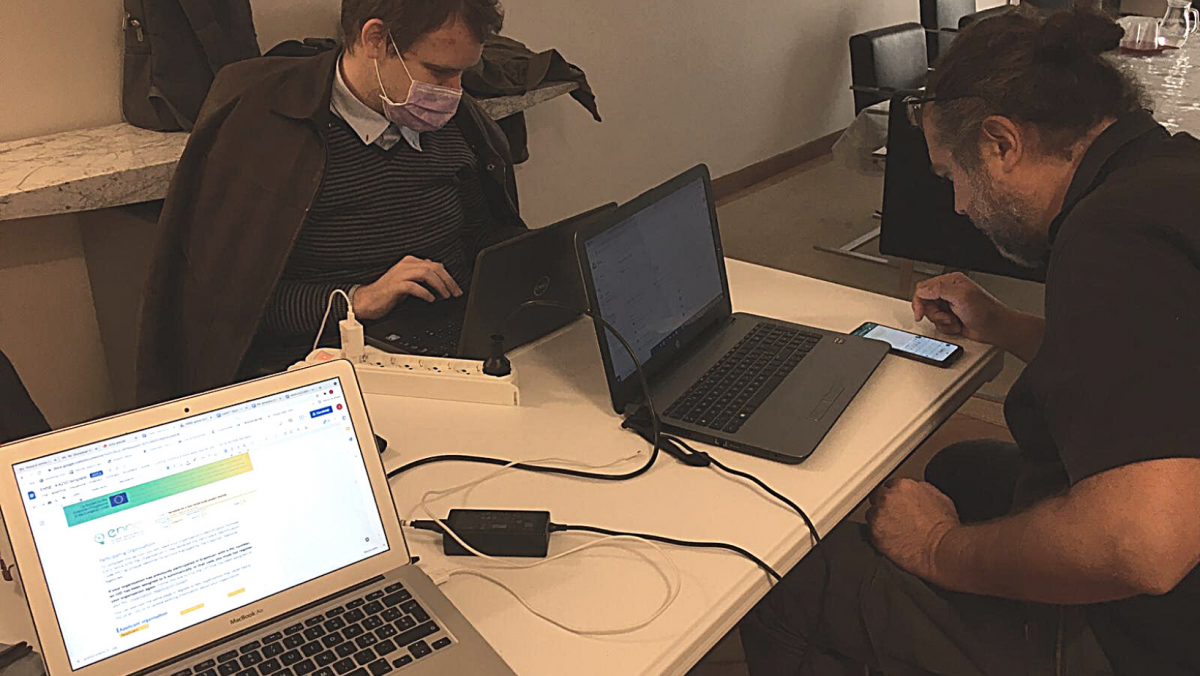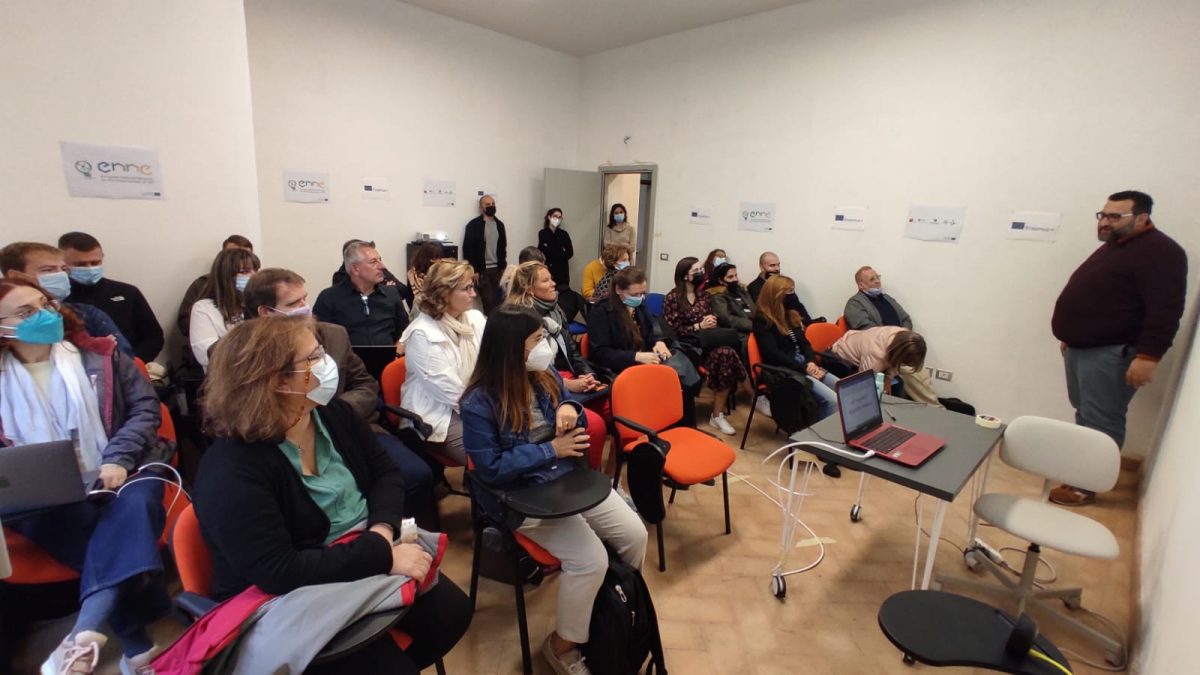As part of the Blended training course on Erasmus KA2 project proposals writing the Bulgarian
participants have provided short feedback on the Face-to-face adventure of Foligno 18-22
October 2021.
After some challenges due to the global pandemic, the three network members,
Eng. Irina Mishkova-Yotova, Eng. Kalin Ivanov and Mr Rusev successfully managed to take
active part in the residential training.
Here is what they are highlighting regarding the learning experience that they have:
“The most helpful part was the online meetings and going through each step of the KA210
application process because it is a relatively new format of submitting project proposals that I
believe will prove to be a good way to conduct VET activities without requiring many partner
organizations or large funding. The most practical part was the attendance and the mobility in
Italy, because we had the opportunity to meet our partners in person, discuss our ideas, get timely
advice from experts in the field of creating project proposals (from Egina), and write them up in
detail.”
“Communicating with colleagues in English and sharing experiences. Working through the
project documentation – accurately and clearly articulating the aims, objectives, activities, target
groups and their contribution to the skills development of the participants, as well as the
usefulness of the project for the development, accreditation and establishment of the schools as
an institution with a future.”
“Everything was interesting for me, this is the first time I have encountered Erasmus projects,
the team was well prepared, from the training on how to use the platform to the different
presentations on the layout of the project proposal itself. The whole training was extremely useful
because meeting the partners from other countries, as well as touring the localities and schools,
gives us many practical ideas that we can use. In this way, we were able to exchange different
ideas and determine the effectiveness of teaching methods”.
The participants are also sharing some impressions and feelings about the journey:
“I most enjoyed my stay in majestic Rome. The cultural heritage that has been preserved and is
open to the public is extremely precious, incredibly beautiful, impressive, spectacular and
provides the opportunity to experience a part of the historical past.”
“I was impressed with our visit to the Agricultural School in Todi. The way they have organized
the training of their students- a complete closed system including the production and creation of
their own brand of products. The rich technical facilities, experimental fields and laboratory that
the school has been impressive.”
“The part of the service trip that I enjoyed the most was visiting vocational and specialized
schools and having the opportunity to learn about their activities, management, facilities and to
gain inspiration for my future work in Bulgaria. Sharing good practices with colleagues from Italy
was very valuable as they apply/suggest solutions to a number of situations that may arise in the
process of work in VET and in our country.”


